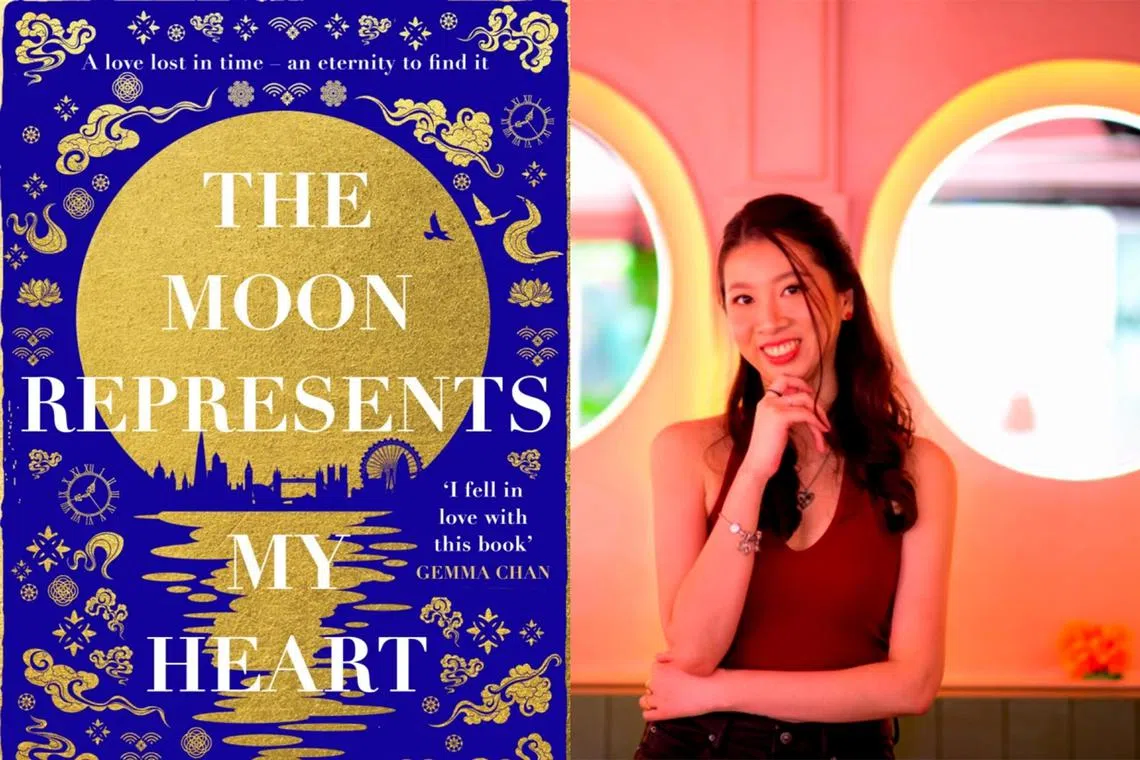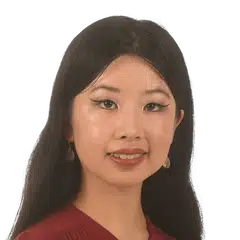Book review: In The Moon Represents My Heart, a Chinese family travels through time
Sign up now: Get ST's newsletters delivered to your inbox

The Moon Represents My Heart by Thai-Chinese author Pim Wangtechawat.
PHOTOS: MAGPIE, PIMWANGTECHAWAT.NET
Follow topic:
The Moon Represents My Heart
By Pim Wangtechawat
Fiction/Magpie/Paperback/367 pages/$37.62 from Amazon SG ( amzn.to/47SSmyK
3 stars
For a Chinese person, there are few songs more iconic than The Moon Represents My Heart, made famous in 1977 by Taiwanese songstress Teresa Teng.
Yet for all that it is a classic love song, it is far from a straightforward answer to the question, “How much do you love me?” Why, if you wish to prove an unchanging, unwavering love, would you compare your heart to the waxing, waning, sometimes altogether absent moon?
Like the song from which it takes its title, Pim Wangtechawat’s debut novel leaves many questions unanswered. Pim, who is Thai-Chinese, has created an intriguing premise: a British-Chinese family whose members are able to travel through time, though their powers vary.
Joshua Wang, for instance, who grew up in the no longer existent Kowloon Walled City, is able to travel only to past Hong Kong. His wife Lily excels at travelling to specific dates, but only within England, where she was born and raised.
Their son Tommy always travels back to London before 1950. His twin sister Eva can go back into the timelines of family members, even ancestors she has never met.
None can stay in the past for longer than 24 hours, nor can they go back to before the 20th century – that is, until one fateful day in 2004, when Joshua and Lily attempt to travel to 1899 and never return.
The unexplained loss of their parents haunts Tommy and Eva into adulthood. Eva, an artist, uses her gift to reconnect with the family Joshua left behind in Hong Kong.
Tommy falls in love with Peggy, a motherless girl in London’s old Chinatown, whom he first meets aged nine in 1927, then visits repeatedly in the years leading up to World War II – even though theirs is a love made impossible by time.
The novel gets off to a promising start – it opens with the family’s first trip together to 1972 Hong Kong to meet Joshua’s idol Bruce Lee – but one longs for more from its fascinating premise.
Its strongest strand is Joshua’s, from his hardscrabble childhood and early time-travel attempts to save his grandfather from an inevitable fate, to his time as a lonely university student in London, making ends meet by working at a Chinese restaurant. Pim’s descriptions of Kowloon Walled City, a place now lost to the march of progress, are especially evocative.
The author’s experiments with form by way of frequent line breaks fall flat, however. These attempts tend to be less lyrical than maudlin, which makes the enjambment feel like an egregious affectation.
Too much about the family’s time-travelling abilities remains unexplored. It is mentioned that they are not the only ones – there are other Chinese people who can time-travel too – but why this is the case is never fully explained. Lily theorises that it has to do with loss, but this does not develop beyond a vague hypothesis.
At times, the novel seems on the verge of delving deeper into displacement and diaspora, from the racist microaggressions that Lily and Joshua face in 1980s London, to Eva’s discovery that her great-grandfather was among the Chinese sailors cruelly deported from Liverpool by the British government after the war. These remain only glimpses, however – a moon obscured by clouds.
That said, this is not the end of the story. Others have picked up on its promise, most notably British actress Gemma Chan, who is attached to executive produce and star in a Netflix adaptation. The limited series will hopefully further develop the themes that the novel has begun to plumb.
There is, after all, another way to read the riddle of “the moon represents my heart”. The moon, in fact, is always present; it is only that clouds, climate and circumstances affect how much of it can be seen.
If, as Teng sings, one thinks a little harder and looks a little longer, one may discern the true heart of the tale in time.
If you like this, read: How To Live Safely In A Science Fictional Universe by Charles Yu (Pantheon, 2010, $26.79, Amazon SG, go to amzn.to/3P23lhL
This article contains affiliate links. If you buy through these links, we may earn a small commission.


